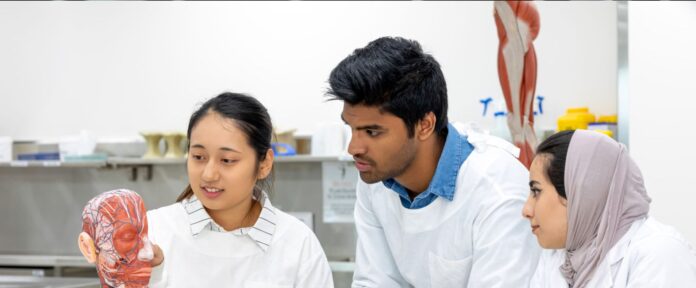At first glance, the path to becoming a doctor in the U.S. may appear to be strictly defined, yet in reality, there are many different ways to pursue it. One option that has been gaining popularity is attending medical school in the Caribbean.
But does a diploma from this region open doors to residency in the U.S.? It’s worth taking a closer look at the facts that can help future students make an informed decision.
The growing appeal of Caribbean medical schools
Caribbean medical schools are becoming increasingly popular for several reasons.
The main advantage is their lower admissions barrier. Caribbean schools offer an alternative that is more accessible while still fully aligned with U.S. standards, and their curricula are comparable to those of state institutions.
In addition, schools in the Caribbean are usually less expensive due to their location, making them a financially practical option.
Even more importantly, many Caribbean programs collaborate directly with hospitals and clinics in the U.S. This gives students a chance to build clinical skills in the exact environment where they hope to practice.
Can you really get a U.S. residency after a Caribbean MD?
It all looks promising, but the key question remains: “Do graduates of Caribbean medical schools truly stand a chance at securing residency positions in the U.S?”
Yes—though the path is neither easy nor guaranteed. Much depends on the specific school attended.
The reason is clear—the competition is tough. Residency programs often favor U.S. applicants, yet many Caribbean-trained doctors have proven themselves, securing positions all across the country. Success comes down to exam performance, strong clinical experience, and personal dedication.
In the end, where you study matters less than how much effort you put in.
Key factors that improve match rates for Caribbean graduates
Several elements can significantly improve the chances of Caribbean medical school graduates securing a residency in the U.S.
Foremost among these is performance on the USMLE, which serves as the universal benchmark for evaluating all applicants, independent of institutional background.
Clinical experience in U.S. hospitals is another major factor. Schools that provide access to American clinical rotations prepare students with real-world skills and also allow them to establish valuable professional connections.
And finally, research and academic activity also matter. Whether it’s publishing papers, presenting at conferences, or joining research teams, it shows residency programs that you’re serious about your future career.
Why CMU stands out as a proven path to U.S. residency
Among Caribbean universities, some institutions stand out for their effectiveness. One of these is the Caribbean Medical University (CMUMED). Its curriculum is designed to prepare students for the demands of U.S. residency programs fully.
With clinical rotations available in accredited U.S. hospitals, CMU students gain invaluable experience and a competitive edge over other international graduates. The university also provides focused USMLE preparation through specialized courses and academic support initiatives.
And here’s the proof—many CMUMED graduates have gone on to secure residencies in prestigious programs across the United States with a match rate of over 80%.

 6 months ago
29
6 months ago
29

 English (US) ·
English (US) ·